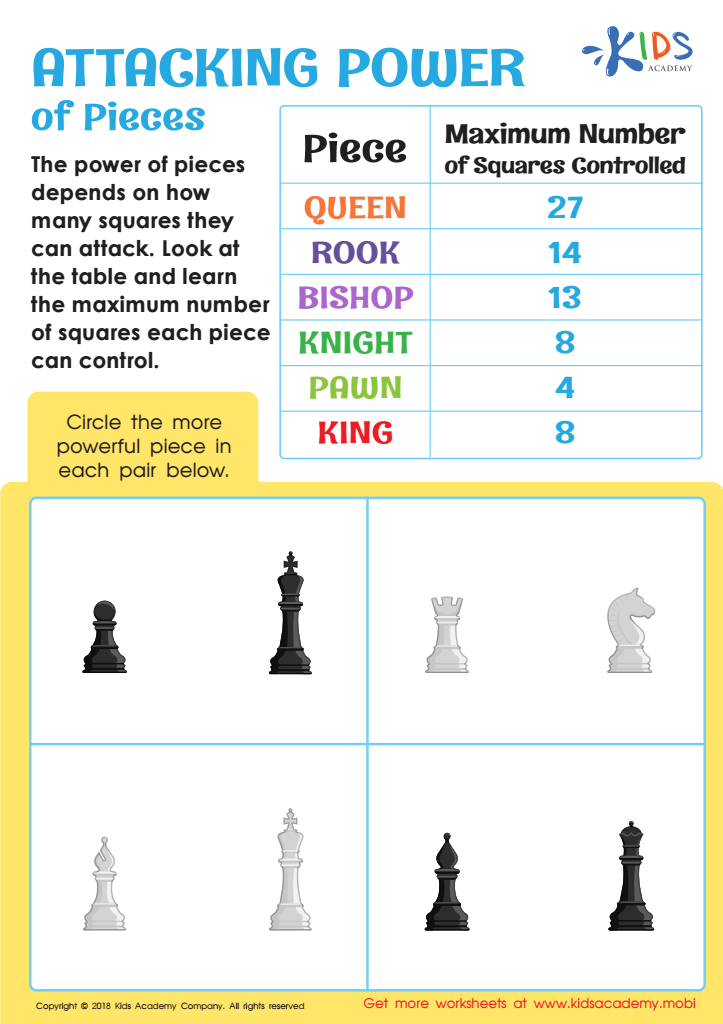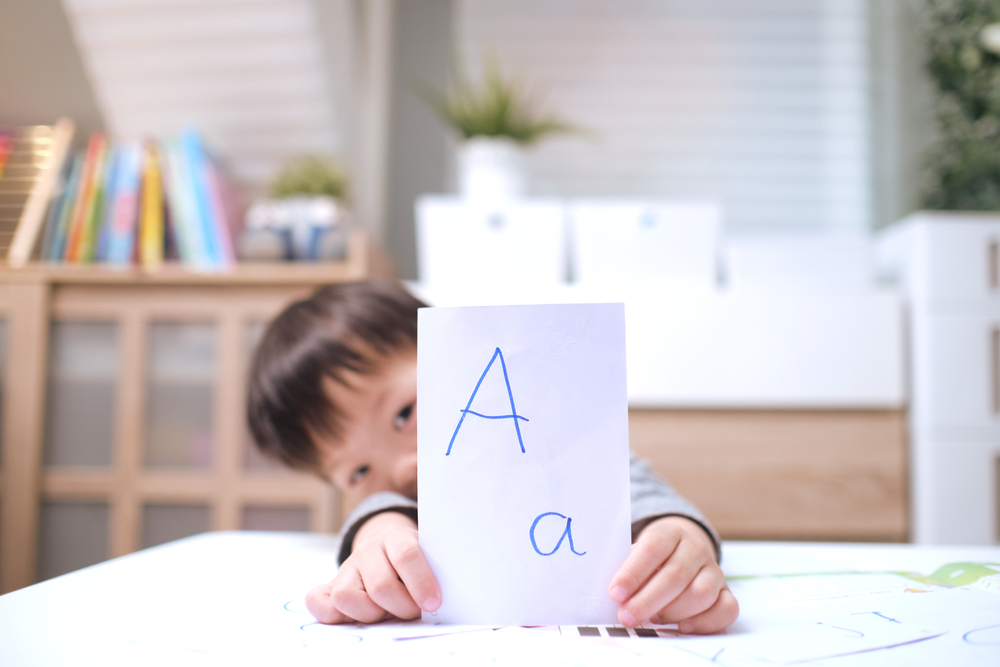Chess strategies understanding Worksheets for Kids
1 filtered results
-
From - To


Attacking Power of Chess Pieces Worksheet
Question/Answer
What does the Chess strategies understanding skill mean when it comes to Grade 1 Chess learning?
The Chess strategies understanding skill in Grade 1 Chess learning refers to the basic ability to recognize and apply simple strategic concepts in chess, such as controlling the center, developing pieces, protecting the king (e. g. , castling), and understanding the value of different pieces.
How does the mastery of the Chess strategies understanding skill affect a student's performance at an early age?
Mastery of chess strategies at an early age significantly enhances a student's cognitive skills, including problem-solving, critical thinking, and spatial reasoning. This improvement in cognitive abilities positively impacts their academic performance, leading to better outcomes in subjects requiring analytical and strategic thinking. Additionally, it fosters patience, discipline, and planning skills, contributing to overall educational success.
How to train the Chess strategies understanding skill in Grade 1 students learning about Chess?
To train Chess strategy understanding in Grade 1 students, start with the fundamentals: teach them the names and moves of each piece. Then, introduce basic strategies like controlling the center, developing pieces, and the concept of checkmate. Use simple puzzles and games to practice these ideas. Interactive, fun lessons with visual aids can greatly enhance their learning and engagement.
 Assign to My Students
Assign to My Students















